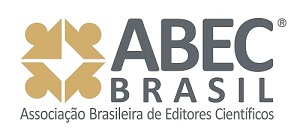NO ENTRELUGAR DO INSÓLITO FICCIONAL: UM ESTUDO DE DOIS CONTOS DE LYGIA FAGUNDES TELLES
Palavras-chave:
Lygia Fagundes Telles, Fantástico, Espaço ficcionalResumo
Este trabalho é parte dos resultados de uma pesquisa maior intitulada "A arquitetura insólita do espaço ficcional: um estudo do conto de Lygia Fagundes Telles" (PIBIC/CNPq), desenvolvida na Universidade do Estado do Rio Grande do Norte. Neste recorte, o estudo focaliza os contos "O Noivo", integrante da obra Mistérios (1981) e "A chave na porta", da obra Invenção e memória (2009), destacando o espaço como categoria expressiva na configuração do insólito, sobretudo aspectos do fantástico e do estranho. No discurso romanesco referido, o espaço, difuso e confuso, adquire contornos do mistério, do sonho e da fantasia, recursos imagéticos que potencializam a atmosfera insólita da história narrada. Nesses contos, realidade e imaginação se entrelaçam para valorar características típicas do fantástico contemporâneo. A linha tênue que separa o real e o irreal permite a transposição das personagens para lugares alhures, possíveis somente na imaginação, no mito e na poesia. A ação oscila entre um e outro espaço, em um tempo que se aproxima do mito, o que provoca um sentimento de incerteza do ponto de vista das personagens – e também do leitor – em relação aos fatos narrados. Deste modo, podemos dizer que, na ficção de Lygia Fagundes Telles, o fantástico se instala na confluência de realidades opostas, entre instâncias como o possível e o impossível, o estranho e o familiar, o ordinário e o extraordinário, perspectiva romanesca privilegiada na literatura contemporânea, tal como identifica Roas (2014), Ceserani (2006) e Calvino (2004), teóricos que, junto a Lins (1976), Dimas (1987), Foucault (1984) e Bachelard (1989), são referências norteadoras nesse estudo.
Downloads
Referências
BRANDíO, L. A. Teorias do espaço literário. 1 ed. São Paulo: Perspectiva, 2013.
CALVINO, I. Contos fantásticos do século XIX: o fantástico visionário e o fantástico cotidiano.Trad.: vários. São Paulo: Companhia das Letras, 2004.
CESERANI, R. O fantástico. Trad.: Nilton Cezar Tridapalli. Curitiba: Ed. UFPR, 2006.
CHEVALIER, J.; GHEERBRANT, A. Dicionário de símbolos: mitos, sonhos, costumes, gestos, formas, figuras, cores, números. Trad.: Vera da Costa e Silva et al. 24. ed. Rio de Janeiro: José Olympio, 2009.
CORTÁZAR, J. Valise de Cronopio. Trad.: Davi Arrigucci Jr. e João Alexandre Barbosa. São Paulo: Perspectiva, 1993.
DIMAS, A. Espaço e romance. 2 ed. São Paulo: Ática, 1987.
ELIADE, M. O Espaço Sagrado e a sacralização do mundo. In: O Sagrado e o Profano: A essência das religiões. São Paulo: Martins Fontes, 2001, p. 25-61.
FERNANDES, I. Dicionário on line de termos literários. Acesso em 16 de agosto de 2015. Disponível em: http://www.edtl.com.pt/business-directory/6054/cronotopo/;
FERREIRA, A. B. de H. O minidicionário da língua portuguesa. Rio de Janeiro: Nova Fronteira, 2000.
FOUCAULT, M. Outros espaços. In: Estética: literatura e pintura, música e cinema. Trad.: Inês Autran Dourado Barbosa. 2. ed. Rio de Janeiro: Forense Universitária, 1984. p. 411 - 422.
FREUD, S. O estranho. In: Edição standard brasileira das obras psicológicas completas de S. Freud. V. XVII. Trad.: dirigida por Jayme Salomão. Rio de Janeiro: Imago, 1996. p. 237-269.
GANCHO, V. Como analisar narrativas. 9. ed. São Paulo: Ática, 2006 (Princípios; 207).
GARCIA, F. O insólito na narrativa ficcional: a questão e os conceitos na teoria dos gêneros literários. In.: _______. (org). A banalização do insólito: questões de gênero literário e mecanismos de construção narrativa. Rio de Janeiro: Dialogarts, 2007, p. 11-22.
JUNG, C. G. O homem e seus símbolos.Trad.: Maria Lúcia Pinho. 2 ed. Rio de janeiro: Nova Fronteira, 2008.
LINS, O. Lima Barreto e o espaço romanesco. São Paulo. Ática, 1976 (Ensaios, 20)
ROAS, D. A ameaça do fantástico: aproximações teóricas. Trad.: Julían Fuks. 1 ed. São Pauo: Unesp, 2014;
TELLES, L. F. Invenção e memória.São Paulo: Companhia das Letras, 2009.
____. Mistérios. Rio de Janeiro: Nova Fronteira, 1981.
TODOROV, T. Introdução à literatura fantástica. Trad.: Maria Clara Correa Castelo. 4 ed. São Paulo: Perspectiva, 2012.
Downloads
Publicado
Como Citar
Edição
Seção
Licença
Copyright (c) 2016 Antonia Marly Moura da Silva, Mônica Valéria Moraes Marinho, Rosaly Ferreira da Costa Santos

Este trabalho está licenciado sob uma licença Creative Commons Attribution-NonCommercial-ShareAlike 4.0 International License.






